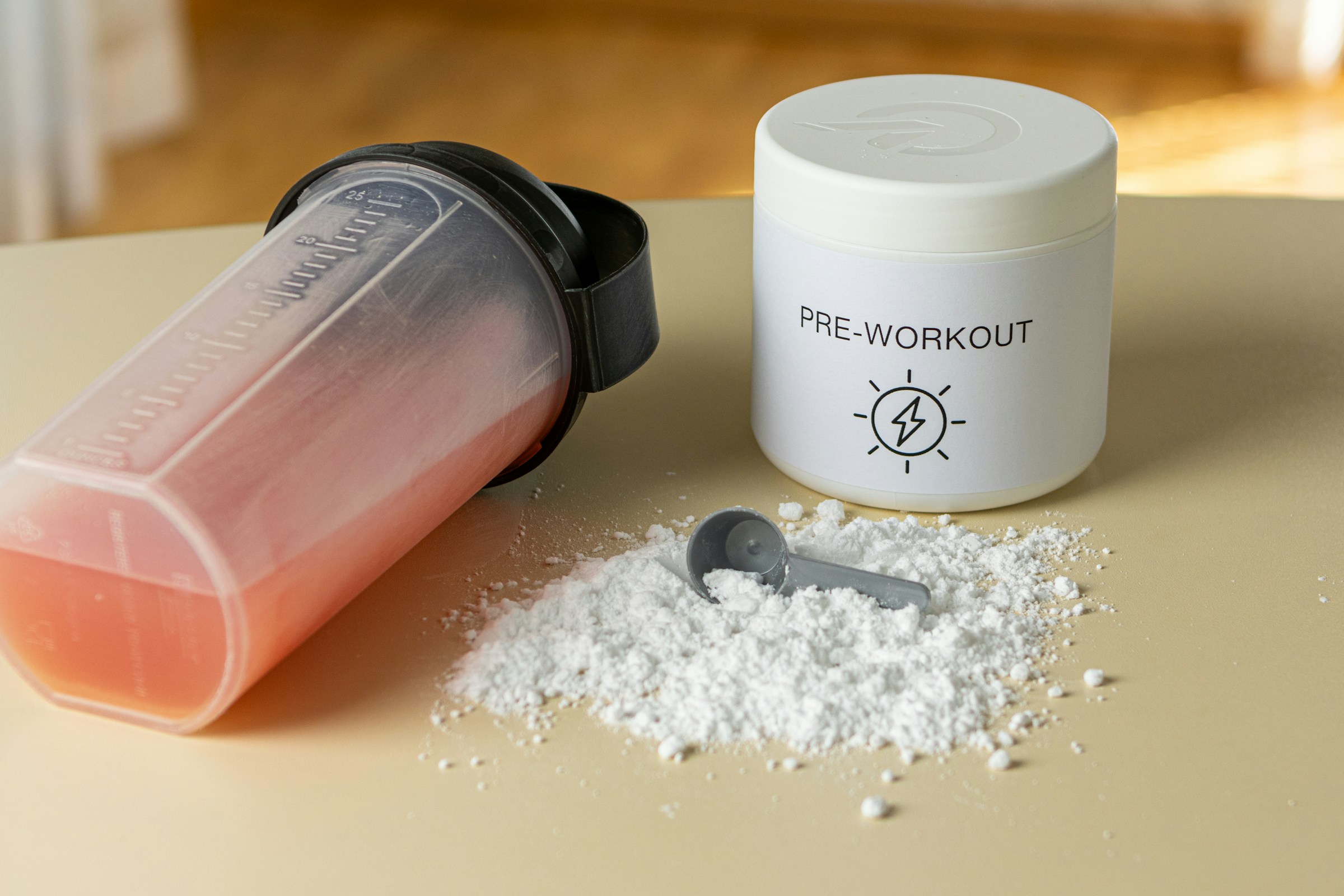
Protein supplements have become a staple for athletes, fitness enthusiasts, and health-conscious individuals looking to support muscle growth, recovery, and overall wellness. Among the many options available, whey protein and plant-based protein are two of the most popular choices. But which one is right for you?
Whey protein is derived from milk and is known for its complete amino acid profile and fast absorption, making it ideal for post-workout recovery. On the other hand, plant-based protein—sourced from peas, soy, hemp, rice, and other plants—offers a sustainable, dairy-free alternative that caters to vegans, those with lactose intolerance, and individuals looking for more digestible options.
Choosing between whey and plant protein depends on several factors, including dietary restrictions, fitness goals, digestibility, and environmental impact. This article breaks down the key differences, benefits, drawbacks, and best uses of both protein types to help you make the right choice for your needs.
What Is Whey Protein?
Whey protein is a high-quality protein derived from cow’s milk during the cheese-making process. Once separated, it undergoes filtration and drying to become a concentrated protein powder. Whey contains all nine essential amino acids, making it a complete protein that is rapidly absorbed by the body.
Benefits of Whey Protein
- Fast Absorption – Whey digests quickly, making it ideal for post-workout recovery.
- Muscle Growth & Repair – Rich in branched-chain amino acids (BCAAs) like leucine, which promotes muscle protein synthesis.
- Immune System Support – Contains immunoglobulins and lactoferrin that boosts immune function.
- Blood Sugar Control – This may help regulate blood sugar levels when consumed with meals.
- Weight Management – Supports muscle maintenance while keeping you full longer.
Cons of Whey Protein
- Lactose Intolerance Issues – Some individuals may experience bloating, gas, or digestive discomfort.
- Artificial Sweeteners & Additives – Some whey products contain artificial flavors or sweeteners that may not be well tolerated.
- Not Vegan-Friendly – Since whey is a dairy product, it is unsuitable for vegans or those avoiding animal products.
What Is Plant Protein?
Plant protein comes from legumes, seeds, nuts, and grains, which are processed to extract and concentrate their protein content. The most common plant-based protein sources include pea, soy, hemp, brown rice, and pumpkin seed protein. While some plant proteins lack one or more essential amino acids, combining different sources (such as pea and rice protein) creates a complete amino acid profile.
Benefits of Plant Protein
- Vegan & Dairy-Free – Ideal for vegetarians, vegans, and those with lactose intolerance.
- Rich in Fiber & Antioxidants – Many plant proteins contain fiber, vitamins, and minerals that support digestion and overall health.
- Easier on Digestion – Some plant proteins, like pea and hemp, are easier to digest than dairy-based proteins.
- Sustainable & Environmentally Friendly – Plant protein production generally has a lower carbon footprint than dairy farming.
Cons of Plant Protein
- Incomplete Amino Acid Profiles – Some plant proteins lack key amino acids, requiring combinations of different sources.
- Varied Digestibility – Certain plant proteins contain antinutrients (such as phytic acid) that can interfere with absorption.
- Grittier Texture & Different Taste – Some plant proteins have a thicker consistency and an earthy taste, which may not appeal to everyone.
Biggest Differences Between Whey and Plant-Based Proteins
While both protein types help build and repair muscle, they differ in composition, digestion, and environmental impact. Here’s how they compare:
Amino Acid Content Differs
Whey protein is naturally a complete protein, meaning it contains all nine essential amino acids. Plant proteins may require blending different sources (e.g., pea and rice protein) to achieve a similar amino acid profile.
Digestion Speed and Rate
Whey protein is quickly absorbed, making it ideal for post-workout muscle recovery. Plant proteins digest more slowly, providing a steady release of amino acids over time, which may be beneficial for meal replacement or sustained energy.
Environmental Impact Level
Plant proteins are considered more sustainable, as whey production contributes to dairy farming’s carbon footprint. If you prioritize eco-friendly choices, plant protein may be the better option.
Mixability and Taste Profile
Whey protein is smooth and creamy when mixed with water or milk, while plant proteins tend to be thicker, grittier, and more earthy in taste. Some brands improve the texture by adding enzymes or flavor enhancers.
Potential Allergen Content
Whey protein contains dairy, making it unsuitable for vegans and those with lactose intolerance. Some plant proteins, like soy, can also be allergenic. If you have food sensitivities, check the ingredient label carefully.
Source and Processing Method
Whey is a byproduct of cheese-making, requiring filtration and processing to create protein powder. Plant proteins are mechanically or chemically extracted from seeds, legumes, or grains to isolate their protein content.
How to Choose Between Whey and Plant-Based Protein
Choosing the right protein supplement depends on several factors, including your dietary preferences, fitness goals, and digestive tolerance. Both whey and plant-based proteins offer unique benefits, so selecting the right one comes down to what works best for your body and lifestyle.
Consider Your Dietary Restrictions
Plant-based protein is the obvious choice if you’re vegan, lactose intolerant, or allergic to dairy. Whey comes from milk, so it contains lactose, which can cause digestive issues for some people. On the other hand, plant-based protein is naturally dairy-free and works well for those following a plant-based diet or with food sensitivities.
Evaluate Your Fitness Goals
Your fitness objectives can influence which protein type will benefit you the most. If you’re focused on building muscle quickly, whey protein supplements, like OIAM Performance Restore Whey Protein, may be more effective due to its fast absorption and high leucine content, essential for muscle growth. However, plant-based protein can provide steady energy and digestive support with added fiber and micronutrients if you’re looking for overall wellness, weight management, or a gentler protein source.
Check Your Digestion Tolerance
Whey protein is quickly digested, but it can cause bloating, gas, or stomach discomfort for those with lactose sensitivity. Plant proteins are digested more slowly, but some people find pea and rice proteins easier to digest on the stomach. If you struggle with digestion, you may want to test both options and see which one feels better for you.
Compare Your Budget
Whey protein is widely available and often more affordable than high-quality plant-based alternatives. However, some premium whey products, such as grass-fed whey isolates, can be expensive. Plant-based proteins especially blends with multiple protein sources, can sometimes cost more due to processing and sourcing.
Assess Environmental Impact
If sustainability is important to you, plant-based protein has a lower environmental impact than whey. Dairy production requires more water, land, and energy, whereas plant proteins—such as pea, hemp, and rice—tend to be more eco-friendly.
Suggested Usage of Whey and Plant-Based Proteins
Once you’ve chosen a protein, timing, and consistency are key to getting the best results.
Post-Workout Recovery
Whey protein is ideal immediately after exercise since it digests quickly and helps repair muscles quickly. Plant-based protein takes longer to absorb but still provides essential amino acids, making it a good option for post-workout recovery—especially when combined with a carbohydrate source for muscle glycogen replenishment. Some brands, like OIAM Performance, offer a wide range of products ideal for quick post-workout recovery and faster muscle building.
Daily Protein Intake
To maintain muscle and overall health, you can spread your protein intake throughout the day. Many people take protein supplements in the morning, as a meal replacement, or as a snack between meals to ensure they meet their daily protein needs.
Mixing for Better Absorption
Blending protein with water, milk, or plant-based alternatives can enhance digestion and absorption. Whey mixes well with milk or water, while plant proteins often work best with nut milk or added fruits for better taste and texture.
Dividing Portions for Sustained Energy
Instead of consuming one large dose of protein at once, dividing it into smaller portions throughout the day can improve absorption, prevent bloating, and support muscle recovery more effectively.
When Is the Best Time to Take Protein Supplements?
Protein timing depends on your goals and lifestyle. To support muscle recovery, the best time to take whey protein is within 30 minutes of finishing a workout. Its fast absorption helps muscle repair and growth.
Plant protein works post-workout as well, but because it digests slower, it’s also great before meals, as a meal replacement, or even before bed to support muscle maintenance overnight. If you’re using protein for general wellness or weight management, you can consume it in the morning, between meals, or as a snack to maintain steady energy levels and reduce cravings.
Ultimately, consistency matters more than timing. As long as you’re hitting your daily protein needs, you’ll benefit from either type of protein.
Bottom Line
The choice between whey and plant-based protein depends on your individual needs, dietary preferences, and health goals. Whey protein is fast-absorbing, rich in leucine, and great for muscle growth, while plant-based protein is allergen-friendly, sustainable, and contains added fiber and antioxidants.
When incorporated into a balanced diet, both types can support muscle recovery, weight management, and overall wellness. Whether you choose whey or plant protein, focus on quality, proper dosing, and consistency to see the best results.
FAQs
Which protein supplement is better for beginners?
Both whey and plant-based proteins work well. Whey supplements, such as OIAM Performance Restore Whey Protein, is a great starting point if you don’t have dietary restrictions due to its high-quality amino acid profile and rapid absorption. If you’re vegan or lactose-intolerant, a plant-based blend with multiple protein sources can be just as effective.
How much protein should I consume daily?
Aim for 0.8–1.2g of protein per kg of body weight for general health. For muscle-building, increase this to 1.5–2g per kg, based on activity level and fitness goals.
Is whey protein better than plant protein for muscle growth?
Whey protein is fast-digesting and rich in leucine, which helps stimulate muscle protein synthesis. However, when consumed consistently, plant-based blends with complete amino acid profiles can also be effective for muscle-building.
Can I mix whey and plant proteins together?
Yes! Mixing both can enhance amino acid diversity and improve digestibility for some people. Many use a combination to balance taste, texture, and absorption rates.
Are plant proteins more expensive than whey protein?
It depends on the brand. Basic whey protein is often cheaper, but high-quality plant proteins—especially organic or multi-source blends—can cost more due to sourcing and processing methods.
* These statements have not been evaluated by the Food and Drug Administration. The products mentioned are not intended to diagnose, treat, cure, or prevent any disease.





